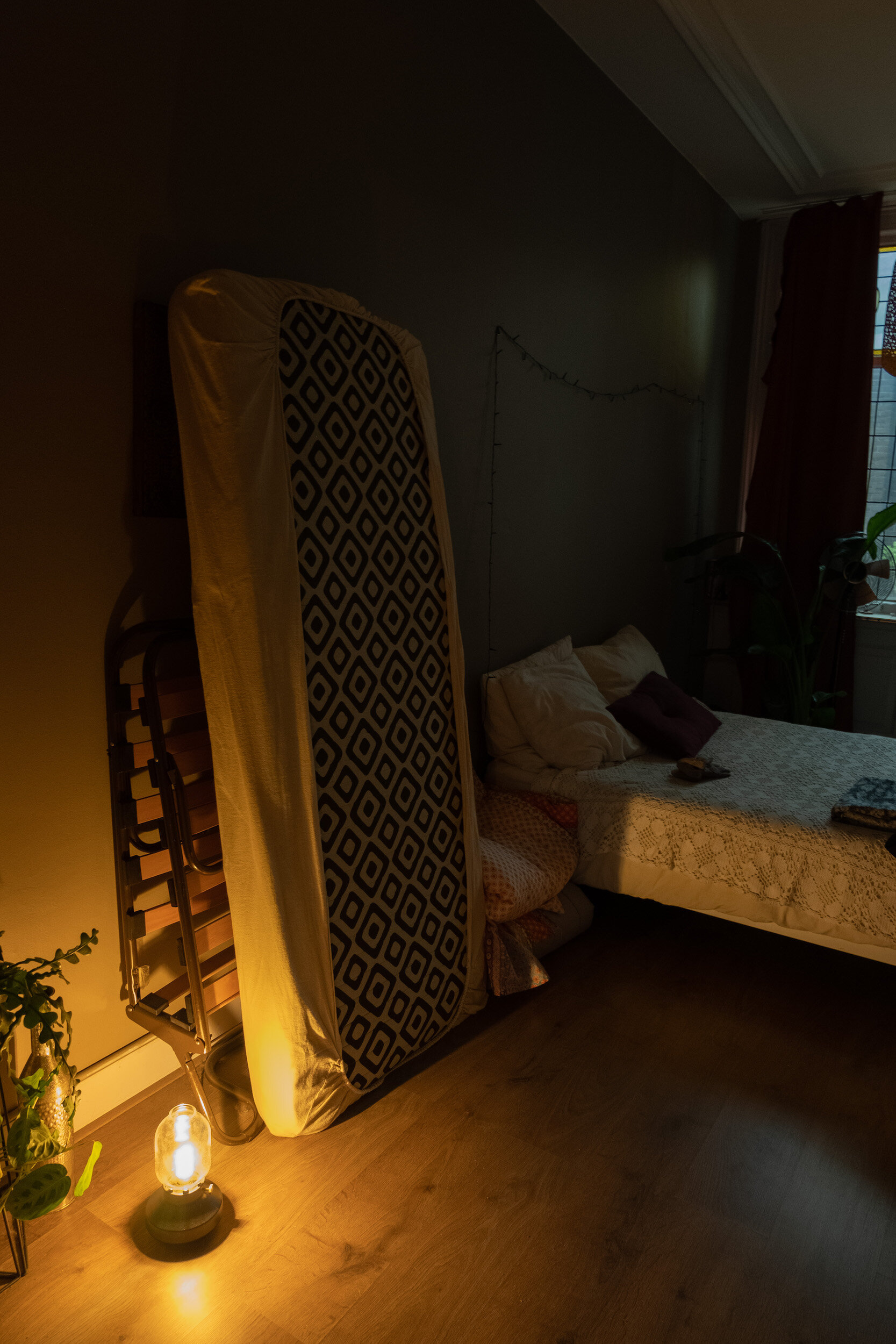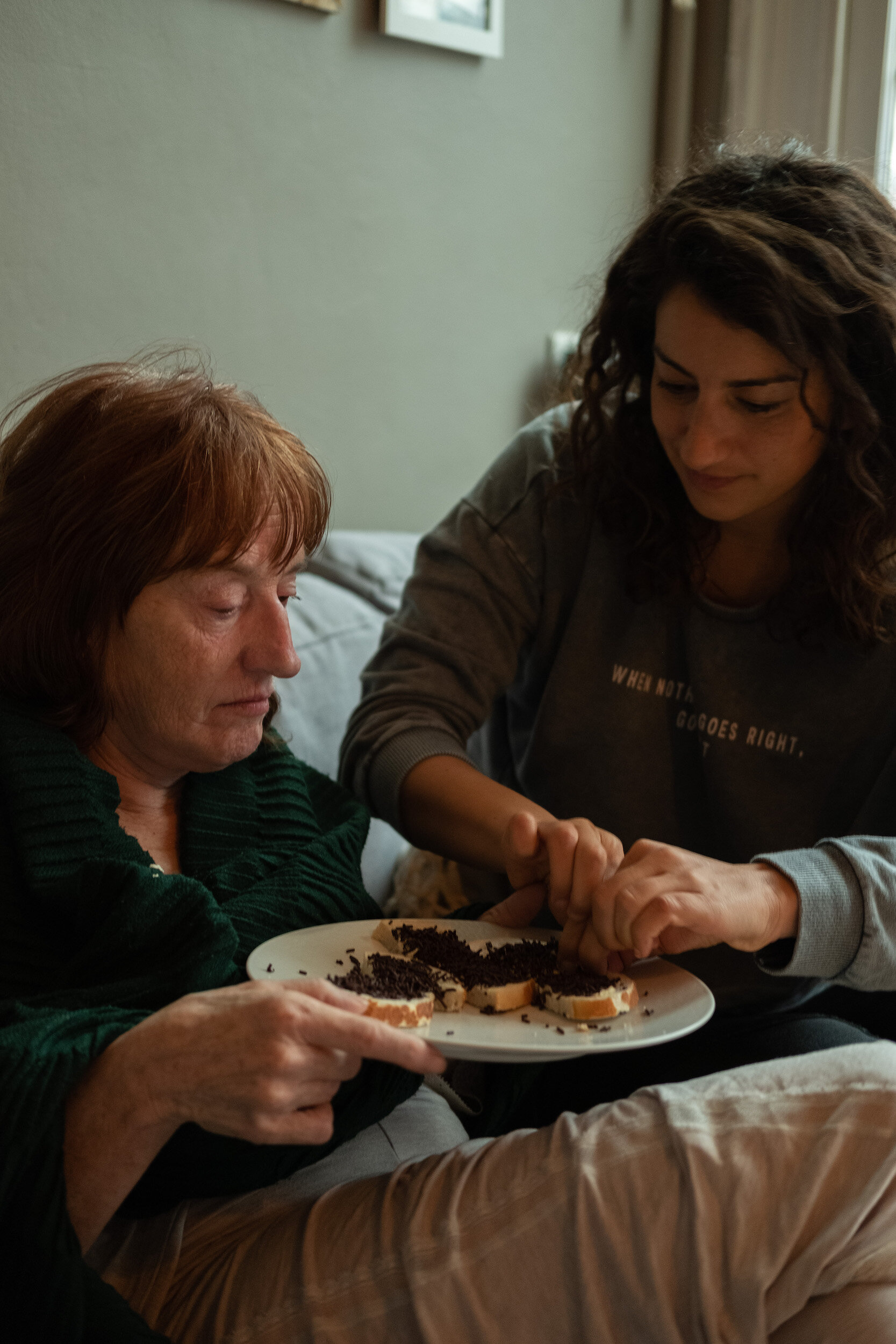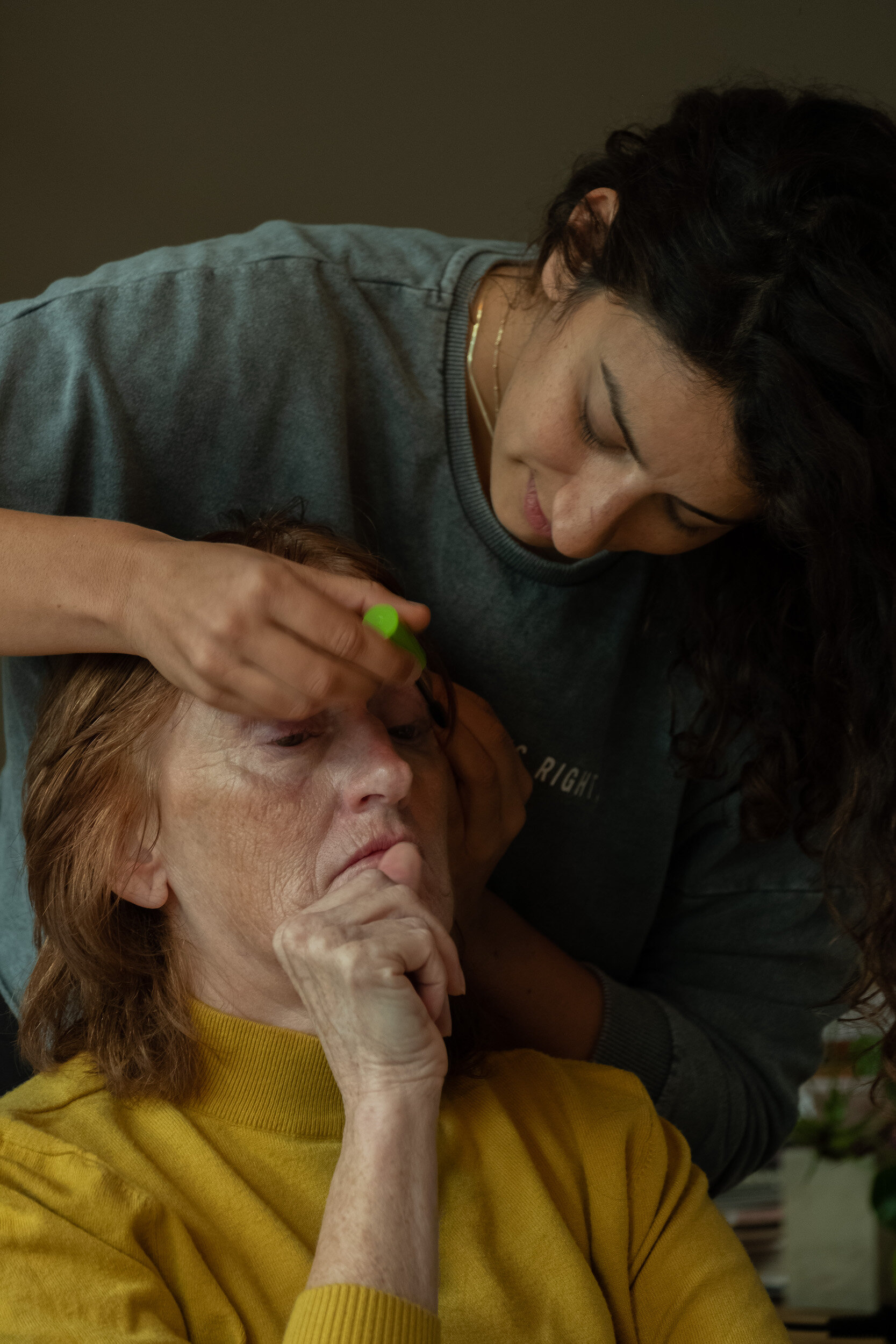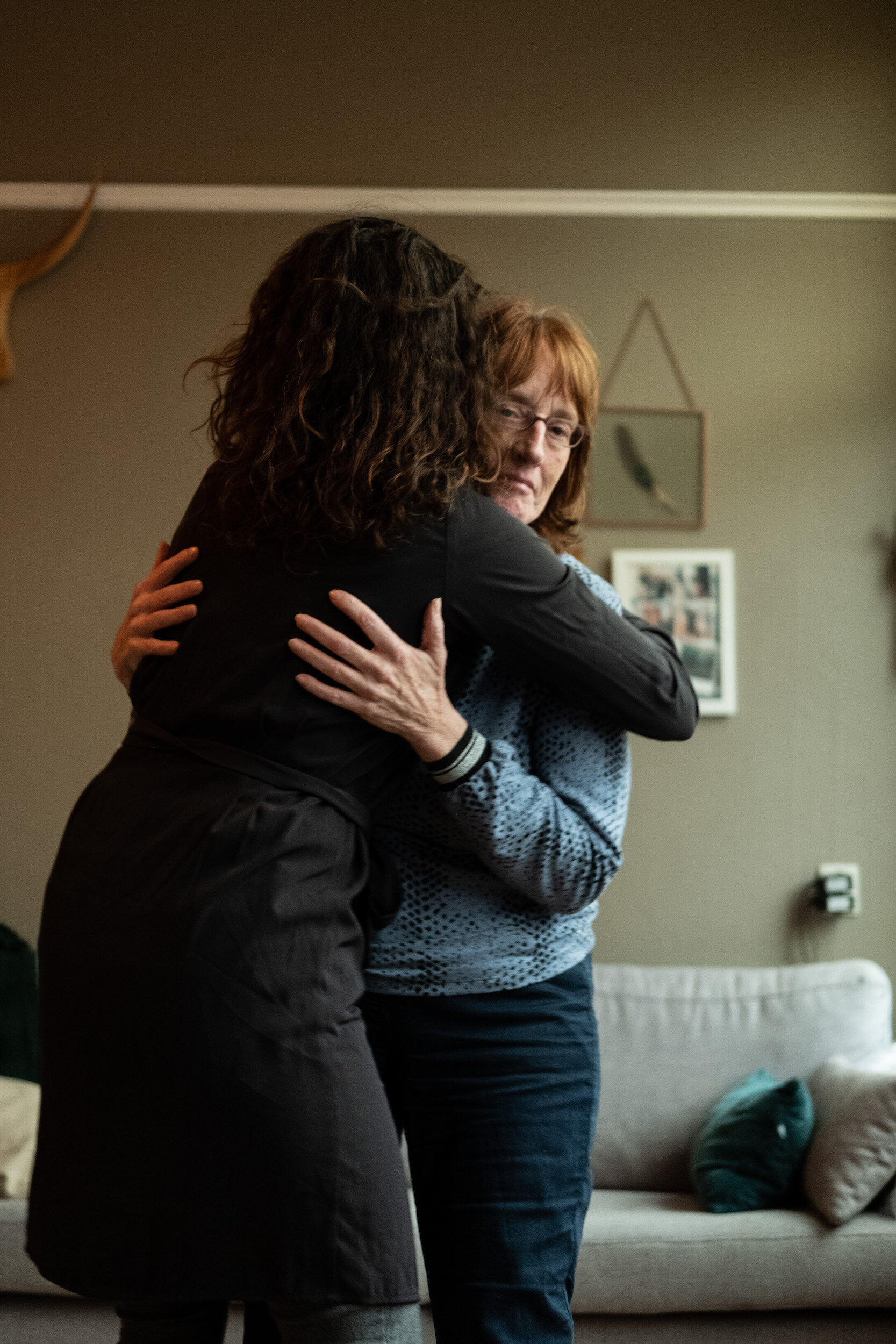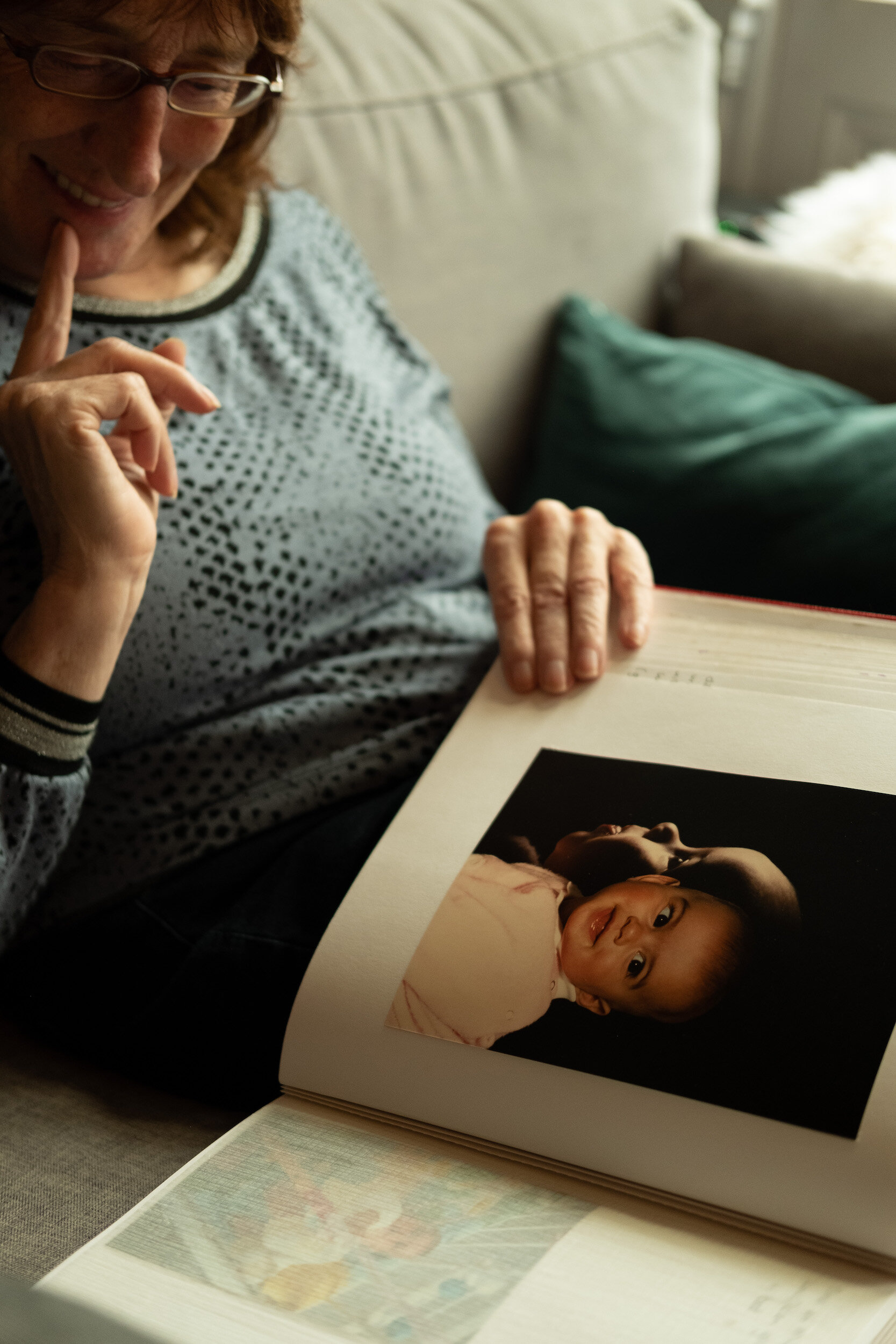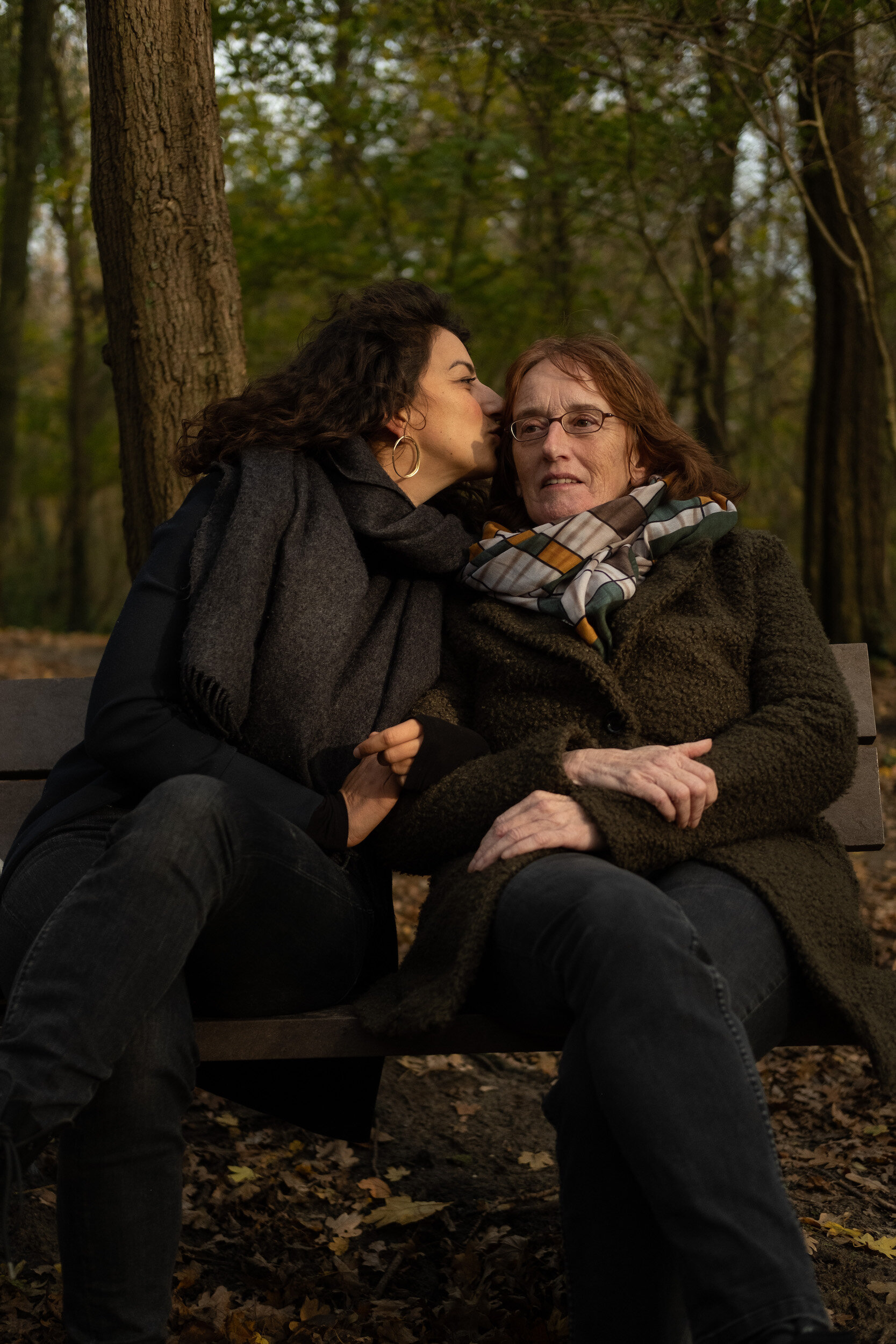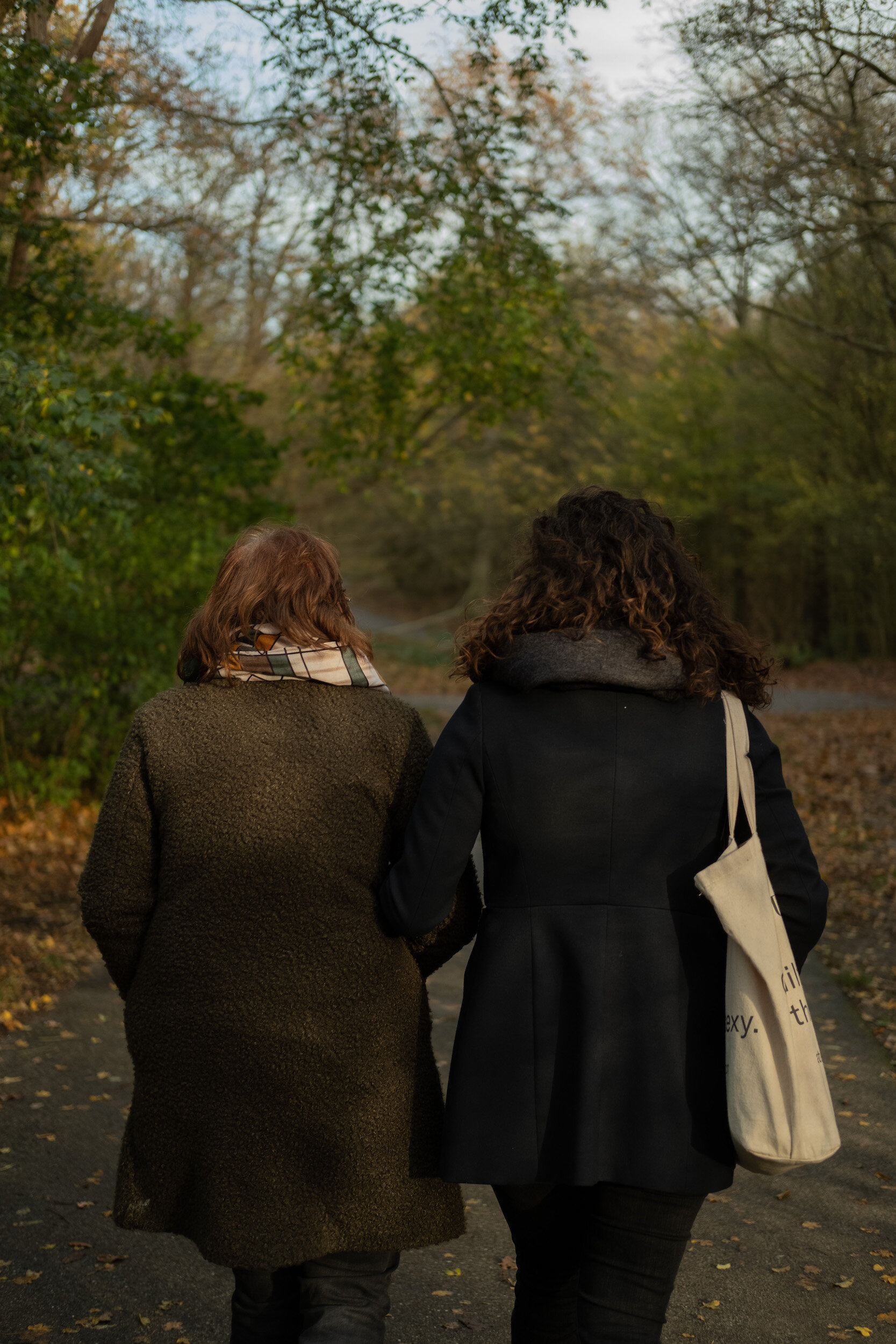Forgetting, not forgotten.
Personal work
Roos (59) is diagnosed with Alzheimer's in May 2020. The disease progresses quickly to the point where she can't live independently anymore. From November to December, she moves in with her daughter Nina (33), before moving to a living facility specialized in caring for people with early-onset dementia.
The last couple of days at home are emotional and difficult, but there's also joy in cooking, cuddling, dancing, singing, walking and laughing together.
Their love for each other is palpable, and love won't be forgotten.
Alzheimer's is a brain disease that is progressive in nature, meaning the symptoms of memory loss worsen over time. It gets difficult to hold conversations or do everyday tasks. Dementia, a general term to describe symptoms that negatively impact memory and other brain functions, usually develops in people over 65 years old, but it can also appear between the ages of 40 - 65.
This young-onset dementia often has an even more devastating impact. It's something almost 12.000 people and their families in The Netherlands live with. Roos and Nina are two of them.
The number of people living with a form of dementia grows rapidly. In The Netherlands, 1 in 7 men will develop a form of dementia, and for women that number is 1 in 3. It is currently the number one cause of death for women in The Netherlands (!!), overtaking cancer and heart diseases.
For some reason, those numbers are surprising to me and to many others around me. There doesn't seem to be the same level of awareness and alertness about the disease compared to something like cancer. The more people know about it, the faster the symptoms van be recognized, the sooner appropriate care can be given.
Memory loss and declining cognitive and linguistic abilities are often the first symptoms of Alzheimer's, as the centers of the brain associated with that are most affected by the disease. Music taps into an area of the brain that is relatively undamaged and causes different brain regions to communicate with each other.
Listening to (old) music, singing and moving along with it, induces all the feel-good hormones and helps to alleviate stress and anxiety. It connects people with dementia symptoms back to themselves, and to others - and it's such a wonderful thing to witness.


